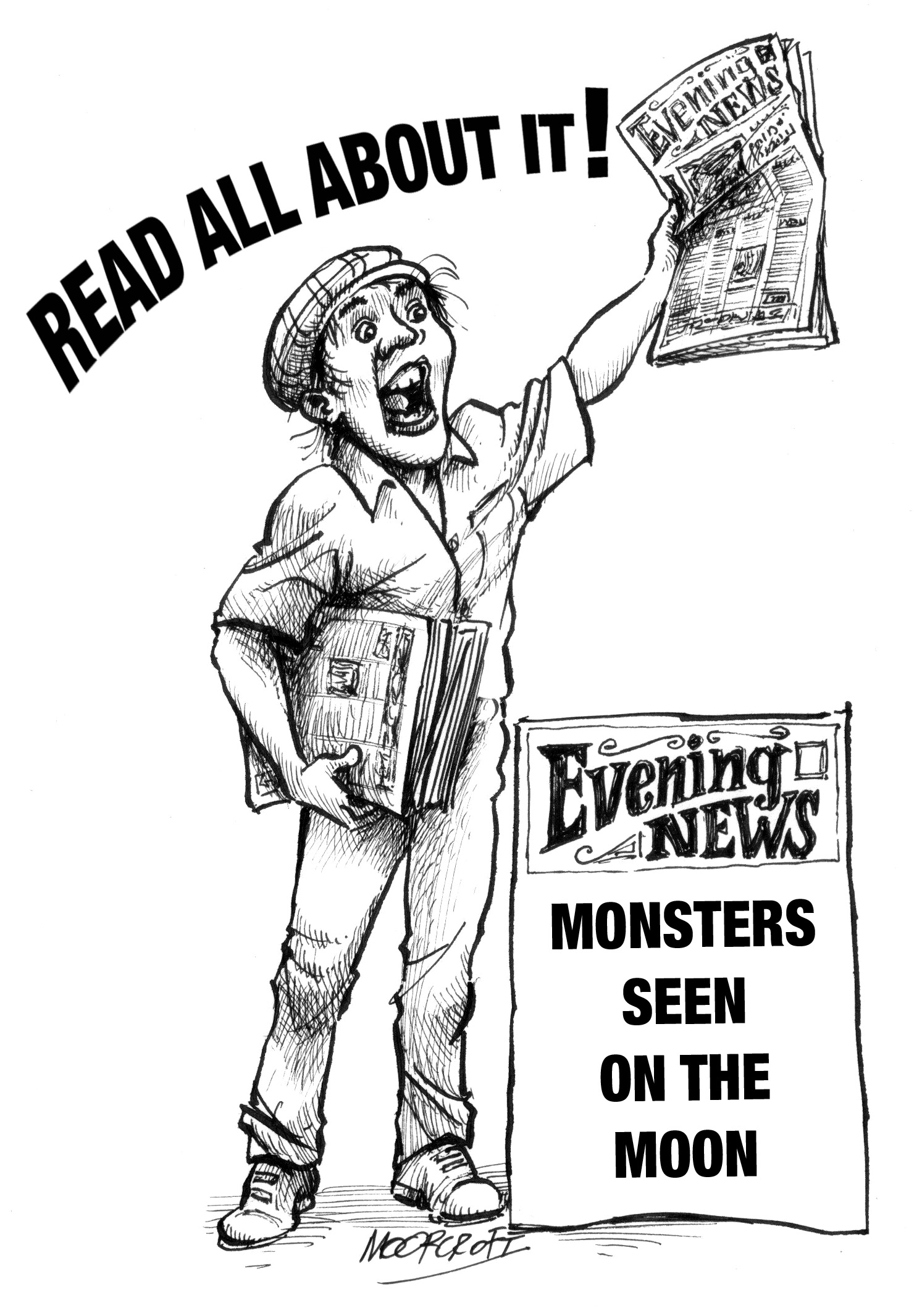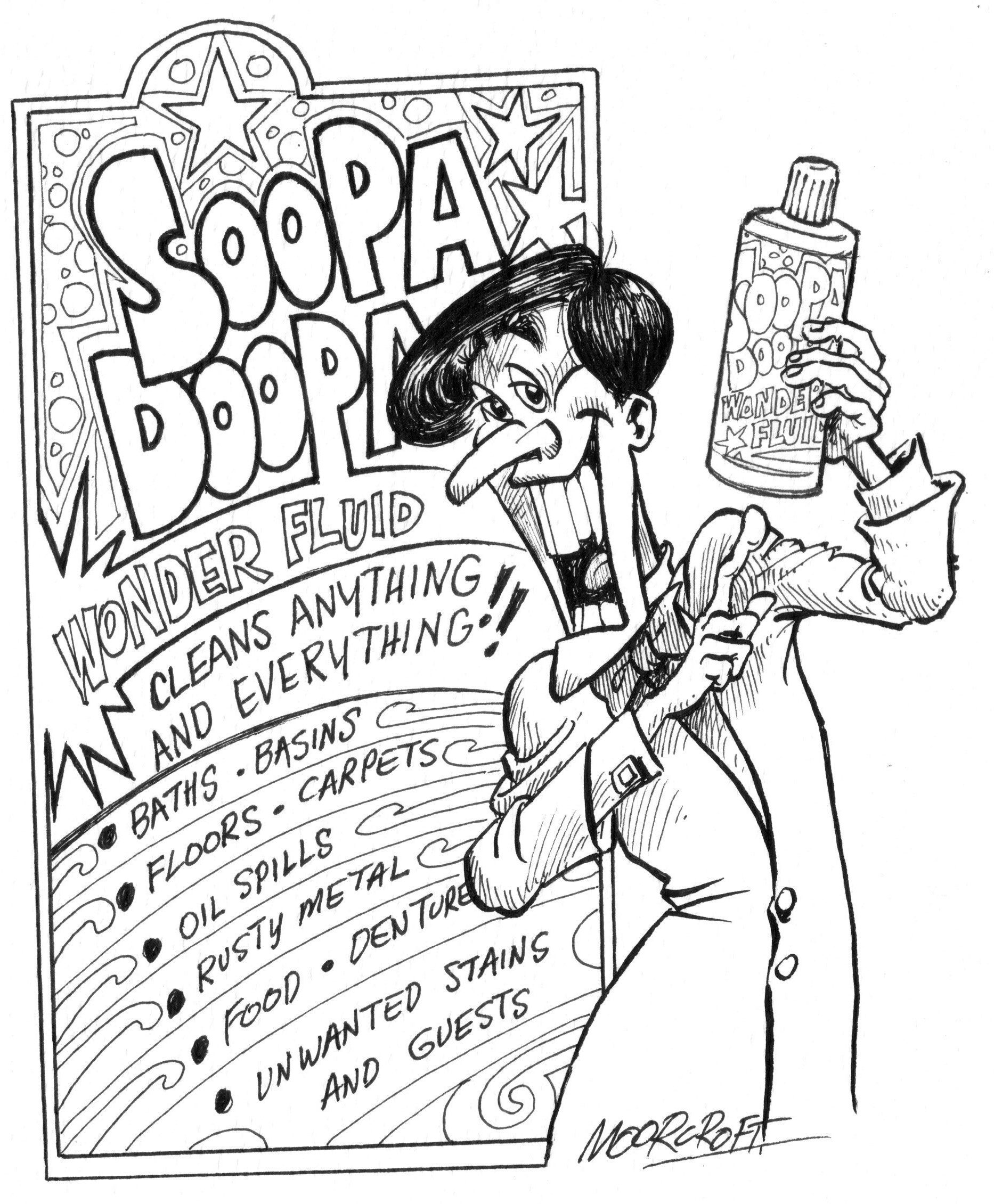In 1271 when Marco Polo left Venice at the start of his journey to the land of the Kublai Khan, there was another Marco that traveled with the expedition.
In 1835, the New York Sun published a series of articles about weirdo monsters seen on the moon. These were seen through a powerful telescope manned by the eminent astronomer Sir John Herschel’s assistant Andrew Grant. Sir John actually knew nothing about it because Andrew Grant was a fictitious character created by Richard Adams Locke a journalist for the Sun. It was a hoax and including the famous astronomer Herschel’s name in the series, gave the story credibility. It did fool many people who were unaware that it was fake news.

FAKE NEWS
Fake news is lying.
Fake news is deliberate lying to achieve an end.
Fake news is not a new concept. Its history goes back over 33 centuries ago, when the Egyptian, Rameses the Great, lied about his army’s victory over the Hittites at the Battle of Kadesh. He probably did this to save face with his people when the result of the battle was inconclusive.
The word fake news is not new either. According to the Christian Science Monitor, it was being bandied about in the late 19th century when a Californian newspaper denounced another newspaper of initiating fake news when they could not source the truth.
People who promote fake news have no motivation to be honest and no
reputation to protect. Some openly admit they get a kick out of seeing how gullible readers are when they believe the lies and they also don’t give a tinker’s cuss how it undermines public trust.
In the past the mass distribution of news was confined to organizations that had access to a printing press of some kind. A greater degree of responsibility and censorship was exercised by many of the larger newspapers then. However independent print shops, with no standard of journalistic ethics, happily printed whatever they could charge for, without being accountable for what they reproduced. Now, reputable distributors of news and information, both in print and electronically have been accused of spreading fake news. Seems as if the rot is setting in.
Today, anyone can publish blatant lies on the social media and if it is sensationaliztic enough, can go viral and reach millions of unsuspecting viewers. An extremely profitable business indeed!
We don’t have a hope. Fake news organizations employ hundreds of computer experts, mostly teenagers, to instantaneously create misleading variations of current news and information and sell these lies to the media. They orchestrate the proliferation of spam. It is very lucrative!
The human brain’s insatiable need for sensational news is not tempered by its need to verify the accuracy of this news. Verifying everything one hears, sees or reads is almost impossible. How to spot fake news, I am told, is to develop a critical mind-set! From now onwards, I will probably develop a suspiciously wary mind-set.
Writing this blog about fake news, suddenly stopped me short when I thought of all the times I have used the net to search for information. I cannot remember if I ever checked for content veracity. At the top of this blog I wrote about Rameses the Great and quickly went back to check if my sources were reliable. They were.
Researching the subject of Fake News I remembered that in my book ‘The Other Marco’ I had unwittingly written about fake news but did not see it as such at the time. TOM [the other Marco] is being instructed in celestial navigation by his father. They are traveling through a desert in Asia with a large group of Mongolian horsemen. An earlier incident has confused Tom and he confronts his father in the following excerpt:
That night, looking at the stars, I was not happy, so I turned to my father, “You were lying today, weren’t you father?”
‘Was I?”
“You said you were a military adviser,” I continued.
“Not at any stage did I say I was a war expert, but you understood it like that, and so did Temuchin. It is not what is said, Marco, but what is implied, that confuses the listener enough, for him to lie to himself.”
“You also said that there would be an invasion!” I grumbled.
“It is a rumor that is so persistent that the people in Cipango themselves, have built protective sea walls all along the coast facing Cathay.”
“But it remains a rumor, and not the whole truth,” I insisted.
“Perhaps not but giving the impression that we are specialists with access to privileged information, achieved what you wanted, access to Yasu!”
“So, to be successful, one must lie,” I was adamant.
“No, to be successful one must simply not tell what the truth is. There is a difference,” my father said patiently.
I stopped looking at the stars and held my head.
Leading someone on, but not telling the whole story, so that the listener adds his own, wrong ending, is also fake news. The information has been incorrectly understood, exactly what the narrator had intended and another victory for fake news was achieved.
Later in the book, TOM is being interrogated by Mongolian soldiers who are amazed to find a foreigner on a barge being towed along the Grand Canal when the country is preparing for war. Tom finds himself only giving half the answers to the questions being asked of him and he is embarrassed:
“My name is Marco and I am from the Kingdom of Venice in the west!” I addressed the men, in the boldest voice I could muster. The Mongolians waited, so I carried on. “I have here the Great Khan’s tablet of authority giving us free passage. He has asked me to travel to Kinsai as a military adviser to the war council over there. I carry this sealed document to them as proof of my identity,” I said, holding up the letter.
“Who are your travelling companions?” the Mongolian asked, noticeably not so sure of himself any more.
“Yasu is an expert in foreign languages, especially the language of Cipango, which the council needs,” I said, “and Tzun is our guide and interpreter.” I could feel my ears flushing red as I lied. My father’s words, that not telling the whole story, was not lying, did not make me feel any better.
The word Fake News, to me, sounds altogether too innocent.

